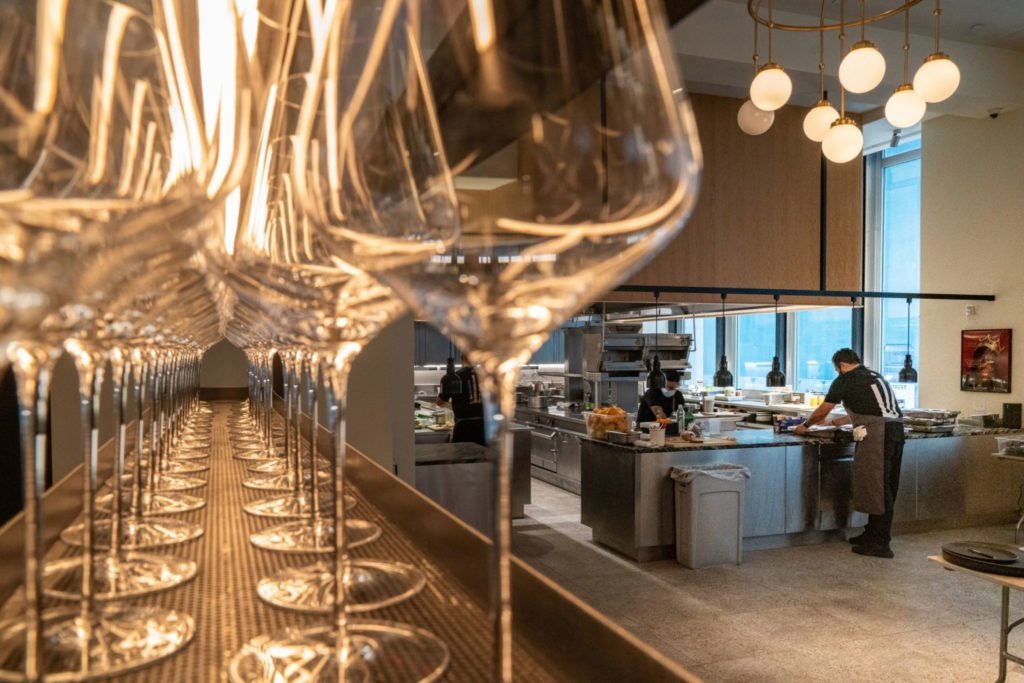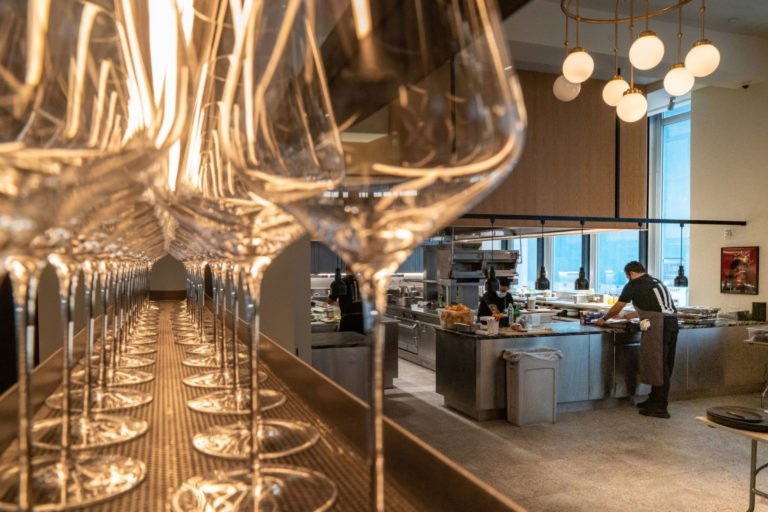There’s no gainsaying that starting a new restaurant requires significant investment to guarantee success. The initial cost of starting a new restaurant typically involves many fixed and unexpected expenses, such as construction, employee hiring and onboarding, inventory management, salaries, and maintenance. We’ve taken the liberty to highlight some essential items you need to buy for your new restaurant.
Point-of-Sale Terminal

A significant number of restaurateurs cite high food and operating costs as factors that impact their bottom line. Fortunately, restaurant owners have access to modern POS computer systems to process payments, analyze sales reports, and track inventory. You may decide to go with a Point of Sale (POS) solution that offers real-time synchronization with an inventory management system. That way, you can know what’s in stock regardless of whether your customers place orders online or physically.
Most POS solutions can work with a mobile ordering app or computer system for executing sales tax and payment processing. Restaurant POS systems handle everything from online ordering to contactless payments. With a restaurant point of sale system, you can improve customer experience and workflow efficiency.
Choosing a POS system can be overwhelming, considering the wide range of POS hardware available in the market. As a rule, you should pick an industry-specific one-stop solution designed to fit customer needs. Essentially, a POS unit is an advanced cash register. That’s why some vendors equip their POS systems with touchscreen monitors for cashiers to accelerate the checkout process. What’s more, some robust POS systems enable access to loyalty programs and the application of discounts and promotions.
One example is the software offered by Retail Plus. They’re a global leader of industry-specific enterprise software. Their retail POS solution includes a monitor, computer, receipt printer, cash drawer, and barcode scanner. More so, the POS system can include a credit or debit card reader.
The key takeaway is that having multiple payment methods can help streamline your business process and improve customer satisfaction.
HVAC Equipment
If COVID-19 taught us anything, it’s the importance of having good indoor air quality in private and public spaces. Many restaurateurs upgraded the HVAC systems in their restaurant businesses. A typical restaurant’s HVAC system comprises a furnace, air conditioner, ventilator, ductwork, and thermostat.
Decide on outfitting your new restaurant with an efficient HVAC unit. If you already have one installed, consider having a professional perform an HVAC tuneup on your HVAC system. Conducting an HVAC tune-up entails making significant changes to your existing air conditioning and heating equipment to ensure peak performance.
More so, an HVAC system in top working condition can enhance energy efficiency, which invariably lowers your energy bill. Always consult HVAC professionals for AC tune-up or heating system tune-up procedures. Furthermore, make a habit of performing routine maintenance on your HVAC system. No doubt, regular HVAC maintenance is a critical aspect of preventive maintenance. A faulty air conditioner can result in uncomfortable working and dining conditions during the summer heat or heating season. Keep in mind that kitchens quickly get hot and stuffy due to the smoke from the stove and heat from the oven.
Don’t hesitate to contact a certified HVAC technician to schedule a maintenance or tune-up appointment. Also, conducting thorough inspections can prevent major breakdowns, invariably leading to fewer repairs. As a DIY-minded homeowner, you can clean your air filter to eliminate airborne contaminants and pollutants like pollen, allergens, bacteria, and viruses.
Restaurant Equipment

Outfitting your restaurant with quality equipment requires substantial investment. One way to keep your expenses under control is to shop for secondhand equipment and utensils. Many restaurants fail within their first few years of operation and usually liquidate their equipment and inventories to restaurant supply stores. You can get quality secondhand restaurant equipment from reputable restaurant supply stores at affordable prices. Keeping your startup costs in check can help ensure a positive cash flow and mitigate the risk of going out of business.





